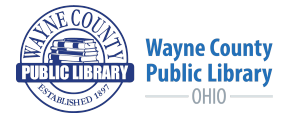Adopted at the December 13, 2010, Regular meeting
1.1 Call to Order
The first order of business shall be a determination that a quorum is present. The presiding officer shall then call the meeting to order.
1.2 Agenda
The Board shall conduct business normally in the following order:
- Comments from public
- Approval of the minutes of the preceding meeting/accept committee meeting minutes
- Director’s report
- Committee/representative reports:
- Facilities
- Operations
- Finance
- Human Resources
- Other Committees
- Old business
- New business
- Comments from public
- Adjournment
The president or members of the Board by a majority agreement may vary the order of business.
1.3 Conduct of Board Meetings
The president shall preserve order and decorum and decide points of order.
1.4 Special Board Meetings
The business conducted at any special meeting of the Board shall be limited to the purposes stated in the posted notice of such meeting.
1.5 Public Participation
The Board welcomes members of the public attending its Board meetings. The meeting agenda shall provide a period for public comment at the beginning and end of the order of business. A person addressing the Board shall limit comments to issues within the jurisdiction of the Library Board. Those addressing the Board shall state their name and address for the record. They may be asked to limit their remarks in order to ensure that the Board has adequate time to hear from all members of the public and to conduct its business.
1.6 Executive Sessions
During regular or special meetings, the Board may enter into an executive session after a majority of a quorum of the Board determines by a roll call vote to hold such a session. The motion to enter into executive session shall state the purpose(s) as specified in Section 121.22(g) of the Ohio Revised Code, All proceedings of an executive session shall be kept in strict confidence by all those in attendance.
2.1. Meeting Notice
Members of the Board shall receive notice of meetings, related information and an agenda by mail or delivery addresses specified by each member.
The board information packet may include:
- Agenda
- Minutes of the previous Board meeting
- Minutes of committee meetings
- Personnel requests
- Monthly Financial Report
- Report of Library service matters
2.2 Posted Notice
Public notice of Board meetings shall be posted on the library website, on all public bulletin boards and by email to the local paper no later than 24 hours prior to the meeting in accordance with Section 121.22(f) of the Ohio Revised Code.
3. Voting
Actions of the Board shall require the affirmative voice vote of a majority of members present, except when a larger vote is required either by the Ohio Revised Code or the Board’s by-laws. A roll call vote is required when a motion is made and seconded to adopt a resolution authorizing:
- the purchase or sale of real or personal property
- the appointment of an officer
- the payment of any debt or claim
- the contracting or incurrence of any obligation
- the payment of money
- the transfer of property
- the adoption of the annual budget or appropriation; or
- upon the request of any member of the Board
The Fiscal Officer shall call the roll of the members of the Board and enter into the minutes of the meeting the names of those voting and their vote
4. Records of the Library – Public Information
Records will be kept according to the Board Public Records Policy and Ohio Revised Code Sections 149.011 and 149.43.
5.1 Attendance
Members of the Board are expected to attend meetings and perform the duties of the respective positions in which they serve. Failure to do so may result in notification of such conduct by the President to the appropriate appointing authority.
5.2 Conflict of Interest
No member of the Board of Trustees shall have any pecuniary interest in any contract entered into by the Board (Ohio Revised Code, 3375.35).
6. Adjournment
A motion to adjourn shall always be in order except while a vote is being taken. A motion to adjourn cannot be amended or debated, but a motion to adjourn to a specific date or time may be amended and debated.
